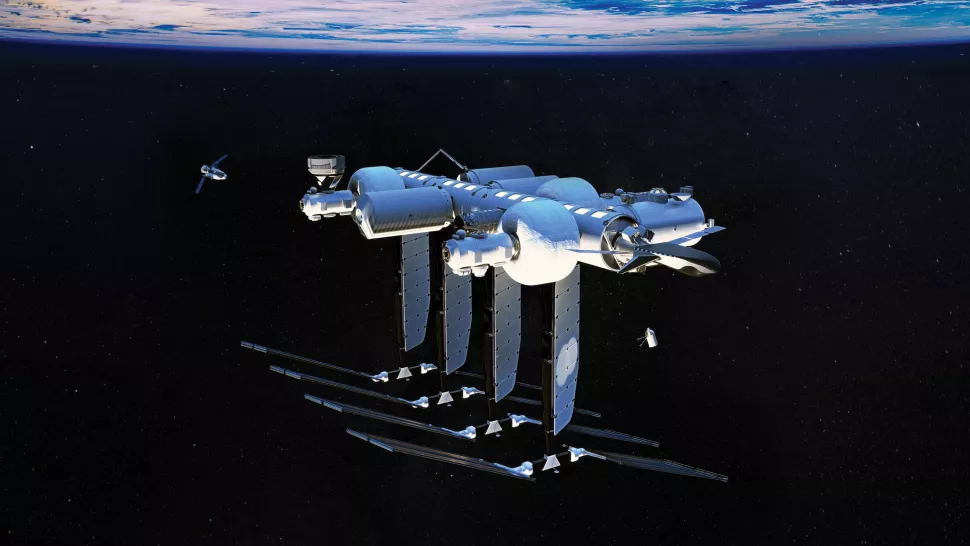Key design evaluation for Blue Origin's private Orbital Reef space station is successful.
Posted: Thu Aug 25, 2022 6:23 pm
According to Space.com
A barrier on the way to orbit was recently overcome by a commercial space station that Jeff Bezos' Blue Origin and other partners hope to construct.
The Orbital Reef team stated on Monday that the project, which involves Blue Origin, Sierra Space, Boeing, and a number of other businesses and institutions, has passed its system definition review (SDR) with NASA (Aug. 22).

The achievement validates the viability of Orbital Reef's proposed architecture and permits the project to go on to the design stage.
Brent Sherwood, senior vice president of advanced development programmes at Blue Origin, stated in a statement that "this SDR takes Orbital Reef forward" (opens in new tab). "Orbital Reef will change the game for human spaceflight in Earth orbit," says the company. "We are satisfying the needs of both the commercial marketplace and NASA's standards."
NASA's Private Low-Earth Orbit Development (CLDP) programme, which intends to help establish at least one commercial outpost before the International Space Station (ISS) is retired in the 2030s, granted the Orbital Reef team $130 million in December 2021.
In that phase, CLDP money was also provided to two further private space station projects. NanoRacks-led Starlab received $160 million, and a team lead by aerospace juggernaut Northrop Grumman received $125 million for their proposal. The three commercial space stations are scheduled to start operating around 2027.
Around that time, a fourth orbital outpost might also be hosting space travellers, businesses that manufacture things somewhere on Earth, and other clients. In accordance with a separate agreement it has with NASA, the Houston-based company Axiom Space will launch a number of modules to the ISS beginning in 2024. If all goes as planned, the Axiom modules will eventually separate and transform into a free-flying commercial outpost.
A barrier on the way to orbit was recently overcome by a commercial space station that Jeff Bezos' Blue Origin and other partners hope to construct.
The Orbital Reef team stated on Monday that the project, which involves Blue Origin, Sierra Space, Boeing, and a number of other businesses and institutions, has passed its system definition review (SDR) with NASA (Aug. 22).

The achievement validates the viability of Orbital Reef's proposed architecture and permits the project to go on to the design stage.
Brent Sherwood, senior vice president of advanced development programmes at Blue Origin, stated in a statement that "this SDR takes Orbital Reef forward" (opens in new tab). "Orbital Reef will change the game for human spaceflight in Earth orbit," says the company. "We are satisfying the needs of both the commercial marketplace and NASA's standards."
NASA's Private Low-Earth Orbit Development (CLDP) programme, which intends to help establish at least one commercial outpost before the International Space Station (ISS) is retired in the 2030s, granted the Orbital Reef team $130 million in December 2021.
In that phase, CLDP money was also provided to two further private space station projects. NanoRacks-led Starlab received $160 million, and a team lead by aerospace juggernaut Northrop Grumman received $125 million for their proposal. The three commercial space stations are scheduled to start operating around 2027.
Around that time, a fourth orbital outpost might also be hosting space travellers, businesses that manufacture things somewhere on Earth, and other clients. In accordance with a separate agreement it has with NASA, the Houston-based company Axiom Space will launch a number of modules to the ISS beginning in 2024. If all goes as planned, the Axiom modules will eventually separate and transform into a free-flying commercial outpost.